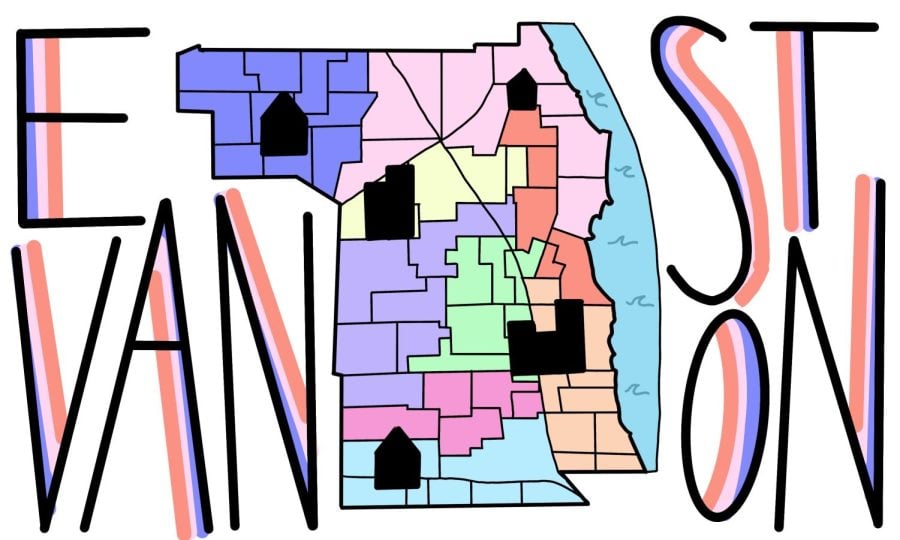Local leaders discuss new initiatives to promote equitable housing
Daily file illustration by Shveta Shah
Evanston is working with Connections for the Homeless to examine the city’s current zoning code.
May 11, 2023
Several local leaders presented their plans to achieve more equitable housing policies through reworking zoning codes in Evanston and in the Chicago area during a virtual seminar Wednesday.
Event organizer Gail Schechter said the local group Community Alliance for Better Government hosted the conversation to work on addressing the effects of redlining in Evanston by increasing the amount of accessible housing.
“We need really robust community engagement,” Schechter said. “(We need) to address numerous community issues, including polarization of wealth in Evanston and our declining population in our minority population.”
Sarah Flax, Evanston’s community development director, said the city plans to partner with Connections for the Homeless to design a new and more equitable zoning code.
Sue Loellbach, manager of advocacy at Connections, said the city’s current zoning code –– which dictates the size and scale of buildings –– means any and all affordable housing requires a complicated approval process.
“As Evanston was getting closer to actually building affordable housing, we started seeing a trend, that zoning was being used as a way to kill both affordable projects as well as other kinds of development,” Loellbach said.
Some areas in Evanston are zoned for single-family development only, prohibiting the creation of additional units that would allow more affordable housing units, according to Flax. Those restrictions drive up the cost of housing, Flax said, because the city can’t make efficient use of land or house multiple families in a given space.
Because zoning codes play a large role in dividing neighborhoods by economic status in Evanston, Flax said it’s time to pursue solutions she’s seen in other communities –– including changing zoning codes to allow condos or multi-unit buildings in place of single-family homes.
According to the Pew Research Center, the average size of a household shrank from 5.79 in 1790 to 2.58 in 2010.
“We have a lot of exclusionary practices that result in systemic inequities,” Loellbach said. “When they were built up as single-family neighborhoods, the houses had more people in them … Now, we’ve de-densified some of our neighborhoods just by the nature of our households, and so those areas are increasingly wealthy.”
Loellbach said Connections found differences in zoning codes between Evanston neighborhoods in its review of the code. That made it “improbable” for any entity to tackle segregation through building affordable housing, she said, because affordable housing can’t be built in some areas of the city.
The group decided to draft a list of potential recommendations to address those issues. The first phase of Connections’ equitable zoning pursuits involved contracting a consulting firm to help develop specific methodology and identify problems in the code.
“It seemed like there were some things (in the zoning code) that were preserving the stratification in the community,” Loellbach said. “(It’s) basically reinforcing some of the redlining that was put in place years and years ago.”
Loellbach added the code focuses on decreasing congestion and maintaining neighborhood character, and does not currently mention equity. Connections sees that omission as a glaring hole in the code, she said, since housing and zoning codes impact equity.
The second phase of the project focused on community input. Connections worked to reach residents and community groups to learn who might be impacted by the zoning code.
“We are talking about trying to reach many, many people as possible, especially the people that don’t normally have their voices heard,” Flax said. “Much of the planning of this sort of stuff was done with a pretty selective group of people who are experts in that field.”
Email: avanikalra2025@u.northwestern.edu
Twitter: @avanidkalra
Related Stories:
— Geracaris wins 9th Ward election, ‘ready to do the work’ on affordable housing
— City Council tables new 5th Ward affordable housing project



